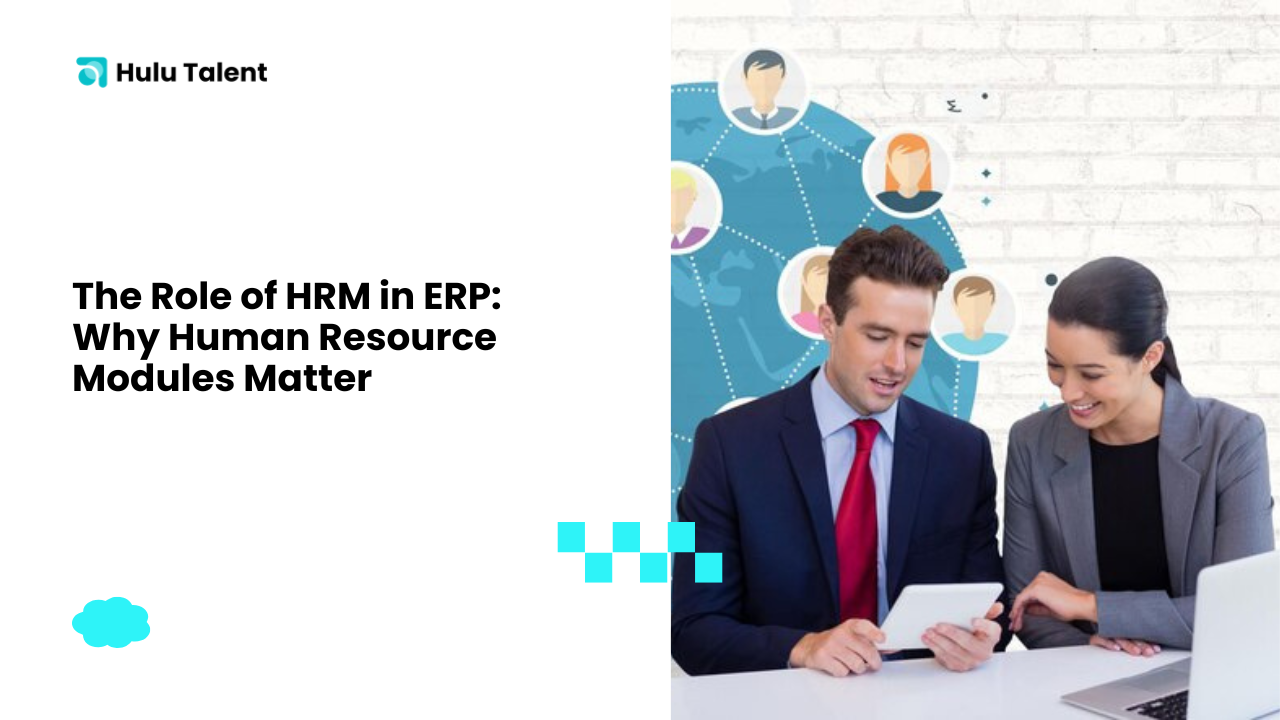When companies implement Enterprise Resource Planning (ERP) systems, most focus on financials, supply chain, and manufacturing. However, one key component that is often overlooked—but incredibly vital—is the Human Resource Management (HRM) module. HRM modules in ERP systems are not just about employee records or payroll—they represent the strategic core that connects talent with business performance.
What Is the HRM Module in ERP?
The Human Resource Management module in ERP is designed to manage all aspects of human capital within an organisation. This includes everything from recruitment and onboarding to performance evaluation, time tracking, leave management, payroll processing, and employee development.
By integrating these functions into a centralised system, HRM modules eliminate silos and provide a unified view of the workforce, enabling smarter and faster decision-making.
Core Functions of HRM in ERP
- Employee Information Management: Stores and organises employee data such as job titles, departments, work history, and contact details.
- Recruitment and Onboarding: Tracks job openings, applications, interview progress, and onboarding activities.
- Attendance and Leave Management: Monitors employee attendance, sick leaves, vacation, and other absence types.
- Payroll and Compensation: Automates salary calculation, tax deductions, and benefit disbursement based on predefined rules.
- Performance Evaluation: Facilitates regular assessments, KPI tracking, and feedback mechanisms.
- Training and Development: Tracks employee skill sets, training history, and development plans.
Why HRM Matters in Your ERP System
Here’s why an integrated HRM module is critical for businesses aiming for growth and sustainability:
1. Improved Workforce Visibility
ERP with HRM allows HR managers and business leaders to access real-time data on employee performance, availability, and productivity. This visibility supports strategic planning, such as workforce allocation and succession management, by providing insight into who is doing what, where, and how well.
2. Enhanced Employee Experience
When employees can easily access payslips, apply for leave, or update personal information via self-service portals, they feel empowered. An intuitive HRM module enhances the employee experience, which in turn boosts morale and retention.
3. Automation Reduces HR Workload
Manual HR processes are time-consuming and error-prone. By automating key HR tasks—such as payroll calculations or leave approvals—HR professionals can shift focus to more strategic functions, such as talent acquisition or workforce planning.
4. Regulatory Compliance Made Easy
Many industries require businesses to maintain strict documentation for employee contracts, certifications, and tax filings. An HRM module ensures that records are complete, accessible, and up-to-date, which simplifies compliance audits and legal obligations.
5. Aligning People with Performance
Modern HRM modules include goal-setting and performance-tracking features that help align individual roles with company-wide objectives. Integrating OKRs (Objectives and Key Results) or KPIs into ERP allows managers to measure performance transparently and fairly.
Benefits of HRM Integration in ERP
| Feature | Benefit |
|---|---|
| Centralised Database | Reduces duplication and improves data accuracy across departments. |
| Real-Time Reporting | Enables faster decisions based on accurate HR metrics and analytics. |
| Employee Self-Service | Empowers staff and reduces HR department workload. |
| Scalable Architecture | Supports business growth with adaptable features and modules. |
| Data Security | Ensures confidential employee data is stored and accessed securely. |
Choosing the Right ERP with HRM Capabilities
When selecting an ERP system, businesses should ensure that the HRM component aligns with their current and future workforce strategies. Key questions to ask include:
- Does it support your organisational structure? Look for systems that accommodate multiple locations, departments, and reporting lines.
- Can it handle local labour laws and payroll standards? Especially important for businesses operating in multiple regions.
- Is it user-friendly for employees? A good HRM module should encourage adoption across all levels.
- Does it support integrations? Your HRM should connect with tools like biometric systems, accounting software, or learning platforms.
Conclusion
The HRM module in an ERP system is no longer optional—it’s essential. As organisations grow, managing human capital becomes more complex and more crucial. Integrating HRM into ERP not only streamlines routine HR functions but also enables better people management, stronger compliance, and ultimately improved business outcomes.
By investing in a robust ERP system with powerful HRM capabilities, businesses can transform HR from a support department into a strategic driver of success.

